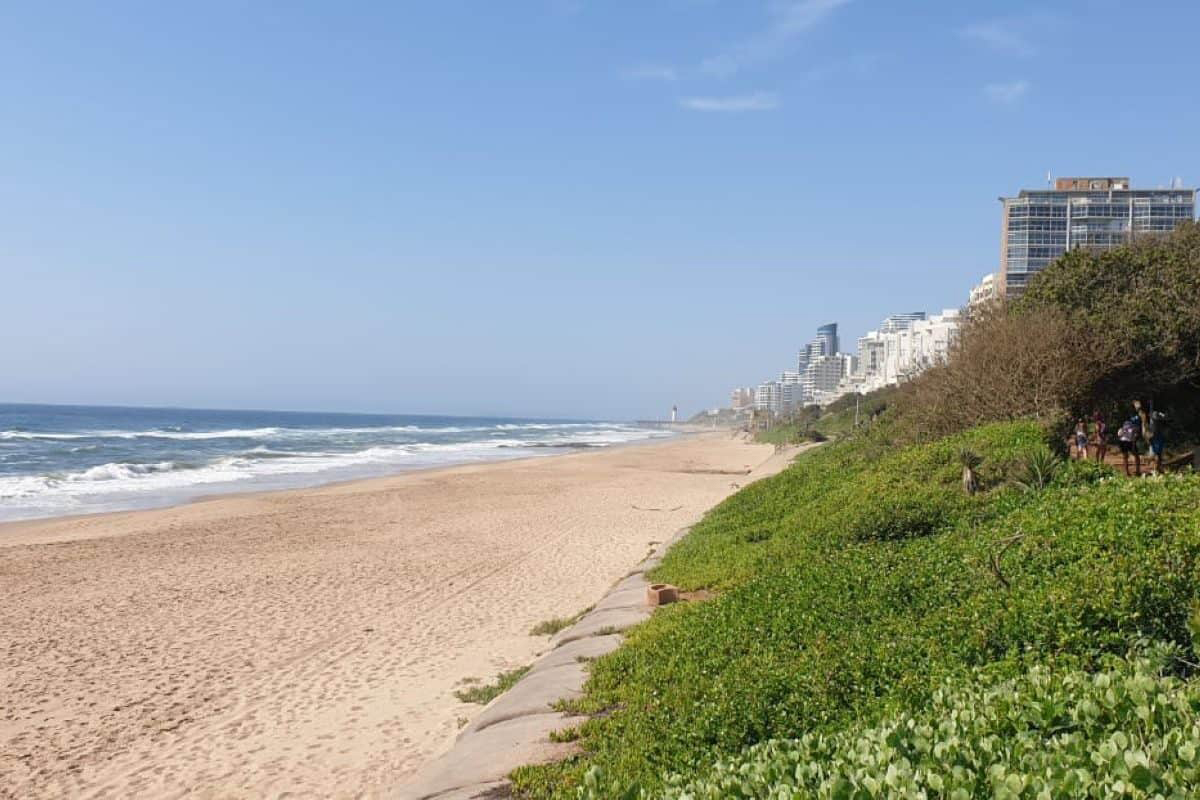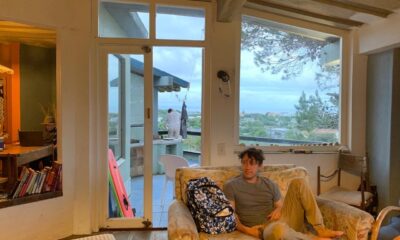
Featured Item

A December of COVID-19, paranoia and cancelled plans
“For the first time in my life, I was so relieved to be home after the December holidays. It felt like we had run the frightening gauntlet of COVID-19, and managed to make it back to where we are safe,” says a Johannesburg mom who had been holidaying in the Western Cape.
The holidays that South Africans had been looking so forward to after a year of hardship became nerve-wracking for families, with tough laws to adhere to and the need to do what they could to avoid the fast-spreading coronavirus.
How did they brave their annual pilgrimage to Plettenberg Bay, Ballito, Umhlanga, or Cape Town in the face of the second wave of the pandemic?
Long-awaited and meticulously planned getaways were drastically adjusted at a moment’s notice, introducing stress to a time that was expected to be stress-free. Whether they chose to press ahead with their holiday plans or opted to remain at home, families experienced a December break unlike any other.
For Steve Crouse and his family, the holiday demanded a considerable amount of last-minute adjustment.
“We arrived in Plett on 14 December, the day the president announced the closure of the beaches on the Garden Route,” Crouse told the SA Jewish Report. “Everything would close on the 16th. We had a few hours on the beach on the day we arrived, and didn’t know what was coming. We squeezed as much beach time into the 15th as we could, and had to make new plans from the next day.”
He continues, “We stuck to our guns and opted to stay. We knew we were in for a very different holiday.”
The changes proved difficult for Crouse’s three children to accept at first. “The kids were in tears and absolutely devastated,” he says. “My six-year-old said that she hated the president. We were really stunned when we heard that Plett’s endless expanses of beaches would be closed but that Durban would stay open in spite of drawing huge crowds. Still, as parents, we felt we had to make the most of it.”
The family took to exploring the lagoons in the area, went on hikes, bike rides, frequented the complex pool, and enjoyed the permitted outdoor spaces as much as possible.
Says Crouse, “You kind of felt punched in the gut. There was an endless amount of open space on the beach, but we couldn’t use it.
“However, the worst part was the sense of morbidity in town. Our complex had only 40% occupancy at its peak. Locals had taken a knock, clawed their way through the year, and prayed for a bumper season in December. There wasn’t much trade, and they were devastated. It was gut wrenching to see.
“In spite of our challenges, we certainly weren’t the worst done by this year. People really suffered.”
The virus added stress to travel as well.
“We flew back home, which was more than a tad nerve-wracking,” says Crouse. “It was our first time on a plane in almost a year, and we didn’t know what to expect. The plane was half empty, passengers were all spread out, and you felt a heightened sense of stress as you ensured your mask was on and you sanitised regularly.”
“Still, we felt quite safe during our holiday, and took the necessary precautions. It was a good break.”
In the face of beach closures, other families opted to change their holiday plans altogether. Nicky Levitas, who had also booked to got to Plettenberg Bay with her husband and children, decided to stay put.
“We were packed and ready,” she says. “Ramaphosa then announced the beach closures. My husband and I looked at each other as we watched the announcement and said, ‘You’ve got to be kidding!’ What would we do with children in Plett for more than two weeks without the beach? There was no point.”
The couple deliberated over holidaying in other locations, including St Lucia, but the thought of hundreds of other holidaymakers converging on the same spot wasn’t encouraging.
Says Levitas, “What if we landed up in hospital? There would be thousands of people around over Christmas and New Year’s, and the risk would be huge. We gave up, and decided to stay put and make the most of being at home.
“We didn’t get out much, but we did go strawberry picking, went to Rush, and got some takeaways. Luckily, we have a pool at home, so we spent a lot of time in the water. My kids were initially devastated, but they ended up having a jol at home.”
Levitas describes their holiday as bittersweet. She says, “I felt like I was cooking, cleaning, and running after the kids all the time. My husband and I were busy the whole holiday and went straight back to work recently. It doesn’t feel like we’ve really had a break.”
However, she welcomed the opportunity to spend time away from the office and with her family.
“It wasn’t the holiday we anticipated, but we spent quality time together,” she says.
For other families, the holiday was a difficult time of loss and endless quarantine. Ronit Sarakinsky’s family holiday took a turn for the worst when her husband, Laurence, contracted COVID-19 after travelling to Cape Town for his aunt’s funeral.
“We had booked to go to Plett as we do every year,” she says. “Although I was very stressed about it, we flew down in early December and actually had a good week.
“Sadly, my husband’s aunt passed away in Cape Town from cancer,” she says. “He travelled there for the funeral, and while flying back to Plett, a cousin who had also attended notified him that he had tested positive. My husband would have to go into isolation.”
Sarakinsky scrambled to prepare for her husband’s arrival, designating a room and bathroom in their small holiday apartment for his exclusive use.
“We met him at the airport,” she recounts. “We kept our distance, I threw him the car keys and he drove around as we prepared the room for him. I was in contact with Hatzolah to get advice on what to do, and we got him into isolation. The whole family who had been at the funeral had to do the same.”
Laurence, his mother, and seven other family members all tested positive for the virus. To make matters worse, Sarakinsky’s son also had to go into isolation after having contact with a friend who had tested positive.
“We had two rooms left in our holiday apartment, and we couldn’t isolate my son properly as well,” she says. “The rest of us quarantined with him, and fortunately, he later tested negative. When my husband came out of isolation, we cancelled our flights and drove home.
“What happened was beyond what we could have contemplated or planned for. We took each day, each hour, as it came. There was a lot of stress, plenty of anxiety, and a difficult shivah period for the family.
“We thought we were going on holiday, but we experienced something very different. We’re all well and healthy now thankfully, but we’ve lost family and COVID-19 made it that much more challenging.
“You can’t really have a holiday under the circumstances. Expectations had to shift quickly, and you have to take these experiences as they come.”










